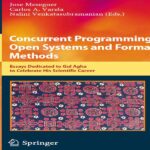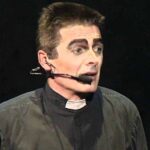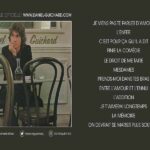این خطبه به نام الزّهراء معروف است.
همه چیز برابر خدا خاشع، و همه چیز با یاری او، بر جای مانده است. خدا بی نیاز كنندۀ هر نیازمند، و عزّت بخش هر خوار و ذلیل، نیروی هر ناتوان، و پناهگاه هر مصیبت زده است. هر كس سخن گوید می شنود، و هر كه ساكت باشد اسرار درونش را می داند، روزی زندگان بر اوست و هر كه بمیرد به سوی او بازمیگردد. خدایا! چشمها تو را ندیده تا از تو خبر دهند، كه پیش از توصیف كنندگان از موجودات، بوده ای. آفرینش برای ترس از وحشت تنهایی نبود، و برای سودجویی آنها را نیافریدی. كسی از قدرت تو نتواند بگریزد، و هر كس را بگیری از قدرت تو نتواند خارج گردد، گناهكاران از عظمت تو نكاهند، و اطاعت كنندگان بر قدرت تو نیفزایند. آن كس كه از قضای تو به خشم آید نتواند فرمانت را برگرداند، و هر كس كه به فرمان تو پشت كند از تو بی نیاز نگردد. هر سرّی نزد تو آشكار و هر پنهانی نزد تو هویداست. تو خدای همیشه ای و بی پایان، و تو پایان هر چیزی، كه گریزی از آن نیست. وعده گاه همه، محضر توست، و رهایی از تو جز به تو ممكن نیست، و زمام هر جنبند های به دست تو است، و به سوی تو بازگشت هر آفریده ای است. پاك و منزّهی ای خدا! چقدر بزرگ و والاست قدر و عظمت تو، و چه بزرگ است آنچه را كه از خلقت تو می نگرم! و چه كوچك است هر بزرگی در برابر قدرت تو، و چه با عظمت است آنچه را كه از ملكوت تو مشاهده میكنم، و چه ناچیز است برابر آنچه كه بر ما نهان است از سلطنت تو، و چه فراگیر است در این جهان نعمتهای تو، و چه كوچك است نعمتهای فراوان دنیا در برابر نعمتهای آخرت. شگفت آور است آفرینش فرشتگان تو، كه گروهی ازآنها را در آسمانها سكونت دادی و از زمین بالا برده ای. آنها از همه آفریدگان نسبت به تو آگاه ترند و بیشتر از همه نسبت به تو بیمناكند، و به تو نزدیك ترند. فرشتگانی كه در پشت پدران قرار نگرفته و در رَحِم مادران پرورش نیافته اند و از آبی پَست خلق نشده اند و ناراحتی و مشكلات زندگی آنان را پراكنده نساخته. آنها با مقام و مرتبتی كه دارند و از ارزشی كه در نزد تو برخوردارند و آن گونه كه تو را دوست دارند، فراوان تو را اطاعت می كنند كه اندك غفلتی در فرمان تو ندارند. اگر آنچه بر آنان پوشیده است بدانند، همۀ كارهای خود را كوچك و ناچیز می شمارند، وبر خویش ایراد می گیرند، و می دانند آن گونه كه باید، تو را عبادت نكرده اند، و آن چنان كه سزاوار توست، فرمانبردار نبودند. خدایا ستایش تو را سزاست، كه آفریننده و معبودی، و بندگان را به درستی آزمایش كردی. خانۀ آخرت را آفریدی و سفرۀ رنگارنگ نعمتها را گستراندی، و در آن انواع نوشیدنی، خوردنی، همسران، میهمانداران، قصرها، نهرهای روان، میوه ها و كشتزاران، قرار دادی. سپس پیامبری را فرستادی تا انسانها را به آن خانه و نعمتها دعوت كند. افسوس كه مردم نه آن دعوت كننده را اجابت كردند، و نه به آنچه تو ترغیبشان كردی رغبت نشان دادند، و نه به آنچه تو تشویقشان كردی، مشتاق شدند. بر لاشه مُرداری روی آوردند، كه با خوردن آن رسوا شدند، و در دوستی آن همداستان گردیدند. هر كس به چیزی عشق ناروا ورزد، نابینایش می كند و قلبش را بیمار كرده، با چشمی بیمار می نگرد، و با گوشی بیمار می شنود. خواهشهای نفس پردۀ عقلش را دریده، دوستی دنیا دلش را میرانده است، شیفتۀ بی اختیارِ دنیا و بردۀ آن است و بردۀ كسانی است كه چیزی از دنیا در دست دارند. دنیا به هر طرف برگردد او نیز برمی گردد، و هر چه هشدارش دهند از خدا نمی ترسد. از هیچ پند دهنده ای شنوایی ندارد، با اینكه گرفتار آمدگان دنیا را می نگرد كه راه پس و پیش ندارند و در چنگال مرگ اسیرند. می بیند، كه آنها بلاهایی را كه انتظار آن را نداشتند بر سرشان فرود آمد، و دنیایی را كه جاویدان می پنداشتند از آنها جدا شده و به آنچه در آخرت وعده داده شده بودند خواهند رسید، و آنچه بر آنان فرود آید، وصف ناشدنی است. سختی جان كندن و حسرت از دست دادن دنیا، به دنیاپرستان هجوم آورد. بدنهادر سختی جان كندن سُست شده و رنگ باختند، مرگ آرام آرام همۀ اندامشان را فرا گرفته، زبان را از سخن گفتن باز می دارد، و او در میان خانواده اش افتاده، با چشم خود می بیند و با گوش میشنود و با عقل درست می اندیشد كه عمرش را در پی چه كارهایی تباه كرده و روزگارش را چگونه سپری كرده؟ به یاد ثروتهایی كه جمع كرده می افتد، همان ثروت هایی كه در جمع آوری آنها، چشم بر هم گذاشته و از حلال و حرام و شُبهه ناك گردآورده و اكنون گناه جمع آوری آن همه بر دوش اوست كه هنگام جدایی از آنها فرارسیده، و برای وارثان باقیمانده است تا از آن بهره مند گردند، و روزگار خود گذرانند. راحتی و خوشی آن برای دیگری وكیفر آن بر دوش اوست، و او درگرو این اموال است كه دست خود را از پشیمانی می گزد، به خاطر واقعیتهایی كه هنگام مرگ مشاهده كرده است. در این حالت از آنچه كه در زندگی دنیا به آن علاقمند بود، بی اعتنا شده آرزو می كند، ای كاش، آن كس كه در گذشته بر ثروت او رشك می برد، این اموال را جمع كرده بود. اما مرگ هم چنان بر اعضای بدن او چیره م یشود، تا آن كه گوش او مانند زبانش از كار می افتد، پس در میان خانواده اش افتاده، نه میتواند با زبان سخن بگوید و نه با گوش بشنود، پیوسته به صورت آنان نگاه می كند، و حركات زبانشان را می نگرد، امّا صدای كلمات آنان را نمیشنود. سپس چنگال مرگ تمام وجودش را فرا میگیرد و چشم او نیز مانند گوشش از كار میافتد و روح از بدن او خارج می شود، و چون مرداری در بین خانوادۀ خویش بر زمین می ماند كه از نشستن در كنار او وحشت دارند، و از او دور میشوند. نه سوگواران را یاری میكند و نه خواننده ای را پاسخ میدهد. سپس او را به سوی منزلگاهش در درون زمین میبرند، و به دست عملش می سپارند و برای همیشه از دیدارش چشم می پوشند. تا آن زمان كه پروندۀ این جهان بسته شود، و خواست الهی فرا رسد و آخرِ آفریدگان به آغازِ آن بپیوندد، و فرمان خدا در آفرینشِ دوباره فرا رسد. آنگاه آسمان را به حركت آورد و از هم بشكافد، و زمین را به شدّت بلرزاند و تكان سخت دهد، كه كوه ها از جا كنده شده و در برابر هیبت و جلال پروردگاری بر یكدیگر كوبیده و متلاشی شده و با خاك یكسان گردد. سپس هر كس را كه در زمین به خاك سپرده شده، درآورد، و پس از فرسودگی تازه شان گرداند، و پس از پراكنده شدن، همه را گردآورد، سپس آنها را از هم جدا سازد، تا از اعمال پنهانی و كارهای پوشیدۀ آنان سؤال كند. آنها را به دو دسته تقسیم فرماید: به گروهی نعمتها دهد و از گروه دیگر انتقام گیرد، امّا فرمانبرداران را در جوار رحمت خود جای دهد و در بهشت جاویدان قرار دهد ، خانه ای كه مسكن گزیدگان آن هرگز كوچ نكنند و حالات زندگی آنان تغییر نپذیرد، در آنجا دچار ترس و وحشت نشوند، و بیماریها در آنها نفوذ نخواهد كرد، خطراتی دامنگیرشان نمیشود، و سفری در پیش ندارند تا از منزلی به منزل دیگر كوچ كنند. و امّا گناهكاران را در بدترین منزلگاه درآورد، و دست و پای آنها را با غُل و زنجیر به گردنشان در آویزد، چنان كه سرهایشان به پاها نزدیك گردد، جامه های آتشین بر بدنشان پوشاند، و در عذابی كه حرارت آتش آن بسیار شدید و درب بر روی آنها بسته، و صدای شعل هها هراس انگیز است قرار دهد. جایگاهی كه هرگز از آن خارج نگردند، و برای اسیران آن غرامتی نپذیرند، و زنجیرهای آن گسسته نمیشود. مدّتی برای عذاب آن تعیین نشده تا پایان پذیرد و نه سرآمدی، تا فرا رسد. پیامبر (ص) دنیا را كوچك شمرد و در چشم دیگران آن را ناچیز جلوه داد. آن را خوار می شمرد و در نزد دیگران خوار و بی مقدار معرّفی فرمود. و می دانست كه خداوند برای احترام به ارزش او دنیا را از او دور ساخت و آن را برای ناچیز بودنش به دیگران بخشید. پیامبر (ص) از جان و دل به دنیا پشت كرد،و یاد آن را در دلش میراند. دوست می داشت كه زینتهای دنیا از چشم او دور نگهداشته شود، تا از آن لباس فاخری تهیه نسازد، یا اقامت در آن را آرزو نكند. و برای تبلیغ احكامی كه قطع كنندۀ عذرهاست، تلاش كرد و امّت اسلامی را با هشدارهای لازم نصیحت كرد، و با بشارتها مردم را به سوی بهشت فراخواند، و از آتش جهنّم پرهیز داد. ما از درخت سرسبز رسالتیم، و از جایگاه رسالت و محل آمد و شد فرشتگان برخاستیم، ما معدنهای دانش و چشمه سارهای حكمت الهی هستیم. یاران و دوستان ما در انتظار رحمت پروردگارند و دشمنان و كینه توزان ما در انتظار كیفر و لعنت خداوند به سر می برند.
About the Might of Allah
Everything submits to Him and everything exists by Him. He is the satisfaction of every poor, dignity of the low, energy for the weak and shelter for the oppressed. Whoever speaks, He hears his speaking, and whoever keeps quiet, He knows his secret. On Him is the livelihood of everyone who lives, and to Him returns whoever dies. (O’ Allah!) The eyes have not seen Thee so as to be aware of Thee, but Thou wert before the describers of Thy creation. Thou didst not create the creation on account of loneliness, nor didst make them work for gain. He whom Thou catchest cannot go farther than Thee, and he whom Thou holdest cannot escape Thee. He who disobeys Thee does not decrease Thy authority, and he who obeys Thee does not add to Thy Might. He who disagrees with Thy judgement cannot turn it, and he who turns away from Thy command cannot do without Thee. Every secret before Thee is open and for Thee every absent is present. Thou art everlasting, there is no end to Thee. Thou art the highest aim, there is no escape from Thee, Thou art the promised (point of return) from which there is no deliverance except towards Thee. In Thy hand is the forelock of every creature and to Thee is the return of every living being. Glory to Thee! How great is Thy creation that we see, but how small is this greatness by the side of Thy Might. How awe-striking is Thy realm that we notice, but how humble is this against what is hidden from us out of Thy authority. How extensive are Thy bounties in this world, but how small are they against the bounties of the next world. A part of the same sermon about the Angels Thou (O’ Allah) made angels reside in Thy skies and place them high above from Thy earth. They have the most knowledge about Thee and Thy whole creation, the most fearing from Thee, and the nearest to Thee. They never stayed in loins nor were retained in wombs. They were not created “from mean water (semen)” (Qur’an , 32:8; 77:20). They were not dispersed by vicissitudes of time. They are on their places (distinct) from Thee and in their positions near Thee. Their desires are concentrated in Thee. Their worship for Thee is much. Their neglect from Thy command is little. If they witness what remains hidden about Thee they would regard their deeds as very little, they would criticise themselves and would realise that they did not worship Thee according to Thy right for being worshipped and did not obey Thee as Thou hast the right of being obeyed. About the bounties and guidance of Allah, and those who are ungrateful Glorified art Thou, the Creator, the Worshipped, on account of Thy good trials of Thy creatures. Thou created a house (the Paradise) and provided in it for feasting, drinks, foods, spouses, servants, places, streams, plantations and fruits. Then Thou sent a messenger to invite towards it, but the people did not respond to the caller, and did not feel persuaded to what Thou persuaded them nor showed eagerness towards what Thou desired them to feel eager. They jumped on the carcass (of this world), earned shame by eating it and became united on loving it. When one loves a thing it blinds him and sickens his heart. Then he sees but with a diseased eye, hears but with unhearing ears. Desires have cut asunder his wit, and the world has made his heart dead, while his mind is all longing for it. Consequently, he is a slave of it and of everyone who has any share in it. Wherever it turns, he turns towards it and wherever it proceeds, he proceeds towards it. He is not desisted by any desister from Allah, nor takes admonition from any preacher. He sees those who have been caught in neglect whence there is neither rescission nor reversion. About Death Whatever they were ignoring has befallen them, separation from this world, from which they took themselves safe, has come to them and they have reached that in the next world which they had been promised. Whatever has befallen them cannot be described. Pangs of death and grief for losing (this world) have surrounded them. Consequently, their limbs become languid and their complexion changes. Then death increases its struggle over them. In some one it stands in between him and his power of speaking although he lies among his people, looking with eyes, hearing with his ears, with full wits and intelligence. He then thinks over how he wasted his life and in what (activities) he passed his time. He recalls the wealth he collected when he had blinded himself in seeking it, and acquired it from fair and foul sources. Now the consequences of collecting it have overtaken him. He gets ready to leave it. It would remain for those who are behind him. They would enjoy it and benefit by it. It would be an easy acquisition for others but a burden on his back, and the man cannot get rid of it. He would thereupon bite his hands with teeth out of shame for what was disclosed to him about his affairs at the time of his death. He would dislike what he coveted during the days of his life and would wish that he who envied him on account of it and felt jealous over him for it should have amassed it instead of he himself. Death would go on affecting his body till his ears too would behave like his tongue (and lose functioning). So he would lie among his people, neither speaking with his tongue or hearing with his ears. He would be rotating his glance over their faces, watching the movements of their tongues, but not hearing their speaking. Then death would increase its sway over him, and his sight would be taken by death as the ears had been taken and the spirit would depart from his body. He would then become a carcass among his own people. They would feel loneliness from him and get away from near him. He would not join a mourner or respond to a caller. Then they would carry him to a small place in the ground and deliver him in it to (face) his deeds. They abandoned visiting him. About the Day of Judgement Till whatever is written as ordained approaches its end, the affairs complete their destined limits, the posteriors join the anteriors and whatever Allah wills takes place in the shape of resurrection of His creation. Then He would convulse the sky and split it. He would quake the earth and shake it. He would root out the mountains and scatter them. They would crush each other out of awe of His Glory and fear of His Dignity. He would take out everyone who is in it. He would refresh them after they had been worn out and collect them after they had been separated. Then He would set them apart for questioning about the hidden deeds and secret acts. He would then divide them into two groups, rewarding one and punishing the other. As regards the obedient people He would reward them with His nearness and would keep them for ever in His house from where those who settle therein do not move out. Their position would not undergo change, fear would not overtake them, ailments would not befall them, dangers would not affect them and journey would not force them (from place to place). As for people of sins, He would settle them in the worst place, would bind their hands with the necks, bind the forelocks with feet and would clothe them in shirts of tar and dresses cut out of flames. They would be in punishment whose heat would be severe, door would be closed on the inmates – in fire which is full of shouts and cries and rising flames and fearful voices. Its inmate does not move out of it. its prisoner cannot be released by ransom and its shackles cannot be cut. There is no fixed age for this house so that it might perish, nor period for its life that might pass away. A part of the same sermon about the Holy Prophet He treated this world disdainfully and regarded it low. He held it contemptible and hated it. He realised that Allah kept it away from him with intention and spread it out for others by way of contempt. Therefore, he remained away from it by his heart, banished its recollection from his mind and wished that its attraction should remain hidden from his eye so that he should not acquire any clothing from it, or hope for staying in it. He conveyed from Allah the pleas (against committing sins), counselled his people as a warner (against Divine chastisement) and called (people) towards Paradise as a conveyor of good tidings. About the Descendants of the Holy Prophet We are the tree of prophethood, staying place of (Divine) Message, descending place of angels, mines of knowledge and the sources of wisdom. Our supporter and lover awaits mercy while our enemy and he who hates us awaits wrath.
فایل صوتی فارسی مربوط به این خطبه را از لینک ذیل دانلود نمایید:
Download: Nahjul-Balagah-Sermon-109





































نظرات کاربران